University Professor Dr David Florian Bieber
Florian Bieber is Professor of Southeast European History and Politics at the University's Centre for Southeast European Studies and Head of the Centre.
Phone: +43 316 380 - 6822
E-mail: florian.bieber(at)uni-graz.at
Web:http://suedosteuropa.uni-graz.at
Office hours: Tuesdays 9.00-11.00 by appointment

Florian Bieber is Professor of Southeast European History and Politics at the Centre for Southeast European Studies at the University of Graz. He coordinates the Balkans in Europe Policy Advisory Group (BiEPAG). From 2019 to 2023 he held the Jean Monnet Chair for the Europeanisation of Southeast Europe. He has been a Visiting Fellow or Visiting Professor at Cornell University, New York University, the London School of Economics and the Central European University.
His publications include Debating Nationalism (Bloomsbury 2020), The Rise of Authoritarianism in the Western Balkans (Palgrave 2020) and Negotiating Unity and Diversity in the European Union (Palgrave 2021, with Roland Bieber) and Pulverfass Balkan (Ch.Links 2023).
He supervises master's theses and dissertations on the countries of the former Yugoslavia, the history of Yugoslavia in the 20th century, as well as issues of nationalism, European integration, democratisation and interethnic relations.
Expertise:
Countries: Bosnia and Herzegovina, Kosovo, Croatia, Montenegro, North Macedonia, Serbia
Languages: German, English, Serbian/Croatian/Bosnian/Montenegrin, French
Disciplines: Political science, history.
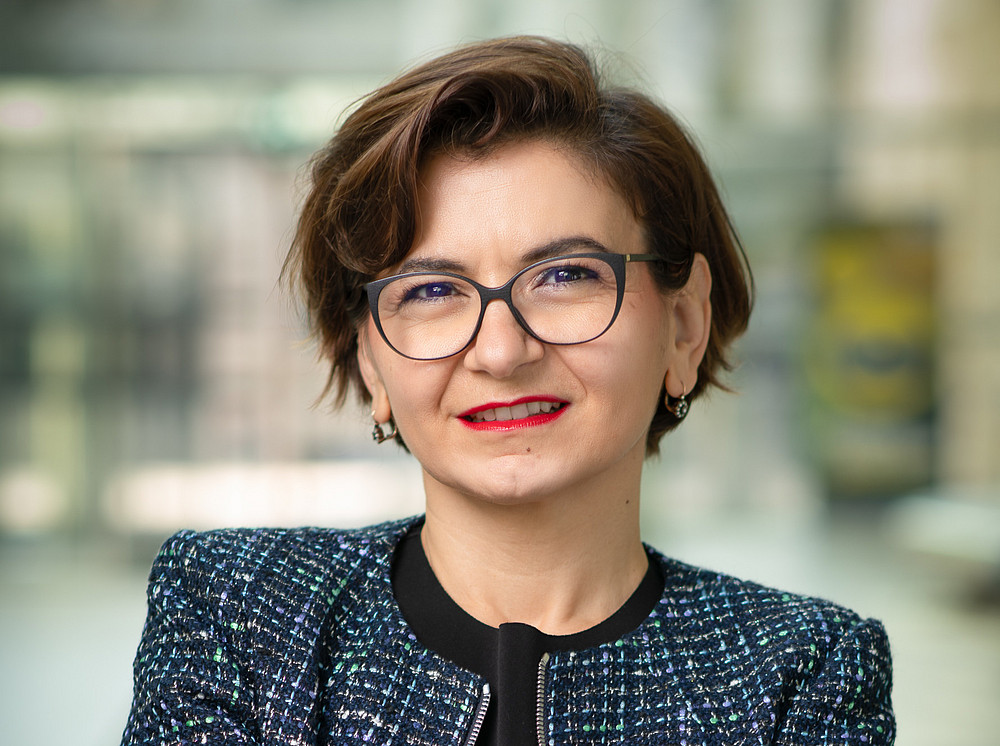
Prof. Dr Bilgin Ayata
Phone: +43 316 380 - 6827
Email: bilgin.ayata(at)uni-graz.at
Consultation hours: Email appointments only, Skype
Research portal
Bilgin Ayata has been a member of the CSEES team at the University of Graz since October 2020. Previously she was professor for political sociology at the University of Basel. She obtained her PhD at Johns Hopkins University (Baltimore, USA) and her MA degree from York University (Toronto, Canada). Her teaching and research centers on socio-political transformations with a focus on migration, borders, citizenship, affect and emotions, and postcolonial studies. Her regional expertise includes Europe and the MENA region. She has published widely on displacement, citizenship, transnationalism, affective politics, memory and violence.
Prof. Dr. Ayata has received numerous distinctive awards and grants. In Summer 2022, she was nominated for research award by the Nomis Foundation to carry out a comprehensive study on the transformation of contemporary borders with a focus on the external frontiers of the European Union. Launched in November 2022, her research project “Elastic Borders” (2022-2026) builds on insights of earlier research projects that she recently directed, such as “Infrastructure space and the future of Migration Management: The EU Hotspots in the Mediterranean Borderscape” (2018-2021), which was funded by the Swiss Network for International Studies (SNIS) and “Affective Citizenship: Religion, Migration and Belonging in Europe” (2018-2022), funded by the Swiss National Science Foundation. She was a DFG- Mercator Fellow (2019-2023) within the CRC 1171 “Affective Societies” at the Freie Universität Berlin, where Prof. Dr. Ayata has been an international collaboration partner since 2015. She has received further awards and grants from the MacArthur Foundation, the German Academic Exchange Service, Friedrich-Ebert Stiftung, University of Basel, FU Berlin, Johns Hopkins University and York University.

Dr.phil. Armina Galijaš, M.A.
Phone: +43 316 380 - 6825
Email: armina.galijas(at)uni-graz.at
Consultation hours: Wednesdays 10.00-11.00 a.m.
Academia
Research Portal
Armina Galijaš is Senior Scientist.
Armina Galijaš has been a Senior Scientist at the Centre for Southeast European Studies at the University of Graz since 2011. Her research interests and teaching activities focus on the contemporary history of Southeast Europe. She studied East and Southeast European History at the Ludwig Maximilian University of Munich, where she also worked at the Institute for East and Southeast European History from 2003 to 2005 after graduating. From 2005 to 2011, she was a research assistant and lecturer at the Institute for East European History at the University of Vienna. She was a visiting fellow or visiting professor at the University of Zurich and the University of Zagreb.
She supervises master's theses on the history, culture and politics of the countries of the former Yugoslavia.
Expertise: She publishes on the topics of ethnic conflicts, migration, religion, everyday history, social and political history and cultural studies.
- Countries: Bosnia and Herzegovina, Kosovo, Croatia, Montenegro, Serbia
- Languages: German, English, Bosnian/Croatian/Montenegrin/Serbian
- Disciplines: History
Dr.iur. Marko Kmezić, M.E.S
Phone: +43 316 380 - 6706
Email: marko.kmezic(at)uni-graz.at
Web: http://suedosteuropa.uni-graz.at/en
Office hours: Mondays 1.00 to 3.00 p.m.
Research portal
Marko Kmezić is Senior Scientist
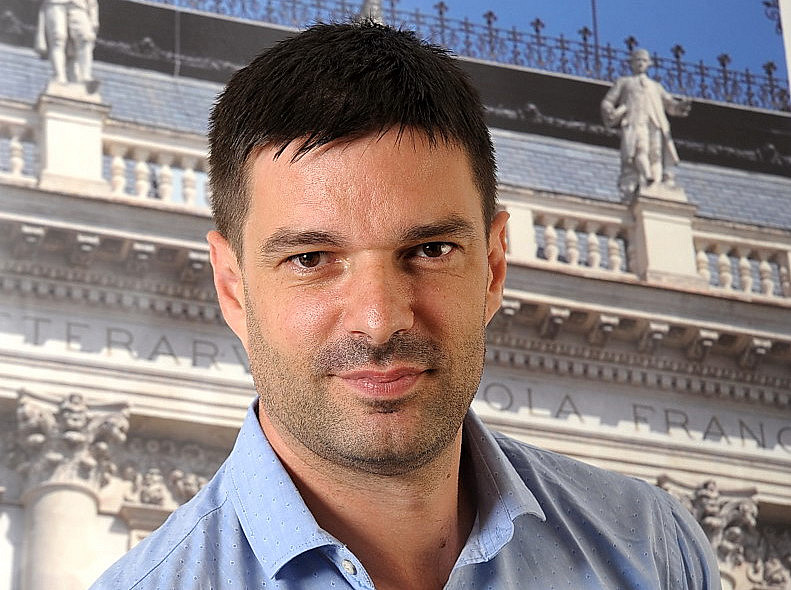
Marko Kmezić (PhD, University of Graz) is a lecturer and senior researcher at the Centre for Southeast European Studies, and editor of the BIEPAG blog. He studied Law at the University of Belgrade, and European Integration and Regionalism at the University of Graz. He is the author of "EU Rule of Law Promotion: Judiciary Reform in the Western Balkans" (Routledge, 2016), and co-editor of "Europeanisation of the Western Balkans: The Failure of Conditionality?" (Palgrave 2020) and "Stagnation and Drift in the Western Balkans" (Peter Lang, 2013).

Assoc. Prof. Mag.iur. Dr.iur. Emma Lantschner
Phone: +43 316 380 - 7413
Email: emma.lantschner(at)uni-graz.at
Web:http://suedosteuropa.uni-graz.at
Consultation hours: by appointment
Academia
Research portal
Emma Lantschner is Associate Professor at the Centre for South East European Studies at the University of Graz. From 2020 to 2024 she was the Italian member of the Advisory Committee on the Framework Convention for the Protection of National Minorities of the Council of Europe, from 2022-2024 also its Vice-President. She was visiting professor at Rutgers University (Camden, NJ) and the University of Belgrade, researcher at the Institute for Minority Rights of EURAC Research (Bolzano, Italy) and external expert for the OSCE High Commissioner on National Minorities. Her publications include Reflexive Governance in EU Equality Law (Oxford University Press, 2021), Soft jurisprudence in minority law (Nomos, 2009) and co-edited commentaries on the ICERD (2020) and the Framework Convention for the Protection of National Minorities (2015).
She supervises master's theses and dissertations on national and European anti-discrimination law, minority law and related human rights issues.
Expertise:
- Countries: Kosovo, North Macedonia, Croatia, Serbia, Romania
- Languages: German, English, Italian, French
- Disciplines: Law, political science.
Claudia Laštro, PhD
Phone: +43/316/380 6694
Email: claudia.lastro@uni-graz.at
Consultation hours: by appointment
Research portal
Claudia Laštro is a university assistant without a doctorate.
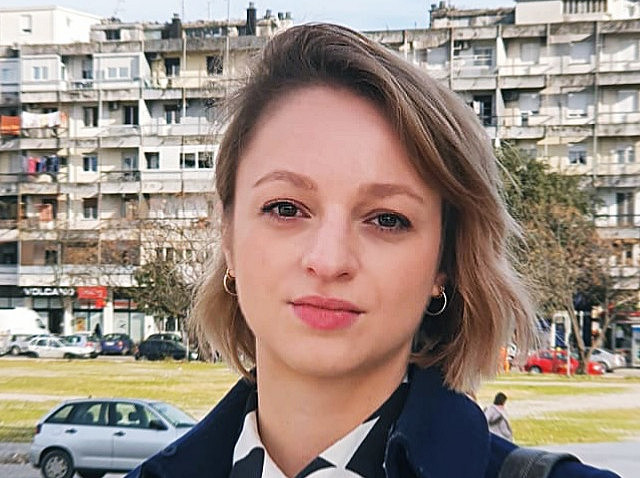
Claudia Laštro is a University Assistant at the Centre for Southeast European Studies and a post-doctoral researcher within the project ‘Understanding coalition building in ‘soft’ authoritarianisms: A comparative analysis of the Western Balkans and the Caucasus,’ funded by the Folke Bernadotte Academy (FBA). She holds a PhD in Law and Politics from the University of Graz and a BA and MA in Political Science, History, and East European Studies from the Ludwig-Maximilians-University Munich.
Her research interests include autocratic and hybrid regimes, dominant parties, post-socialist transformation, and the interaction of formal and informal institutions. She received scholarships and grants from the Stiftung der Deutschen Wirtschaft, Schroubek-Fonds Östliches Europa, and the Rudi-Roth Scholarship.
She co-authored several articles and book chapters, published in European Political Science, Comparative Southeast European Studies, Zeitschrift für Vergleichende Politikwissenschaft, and Die politischen Systeme im Östlichen Europa: Institutionen, Akteure und Prozesse. (Springer 2025).
Expertise:
Countries: Montenegro, Serbia, Bosnia and Herzegovina
Languages: German, English, Bosnian/Croatian/Montenegrin/Serbian
Disziplin: Comparative Politics
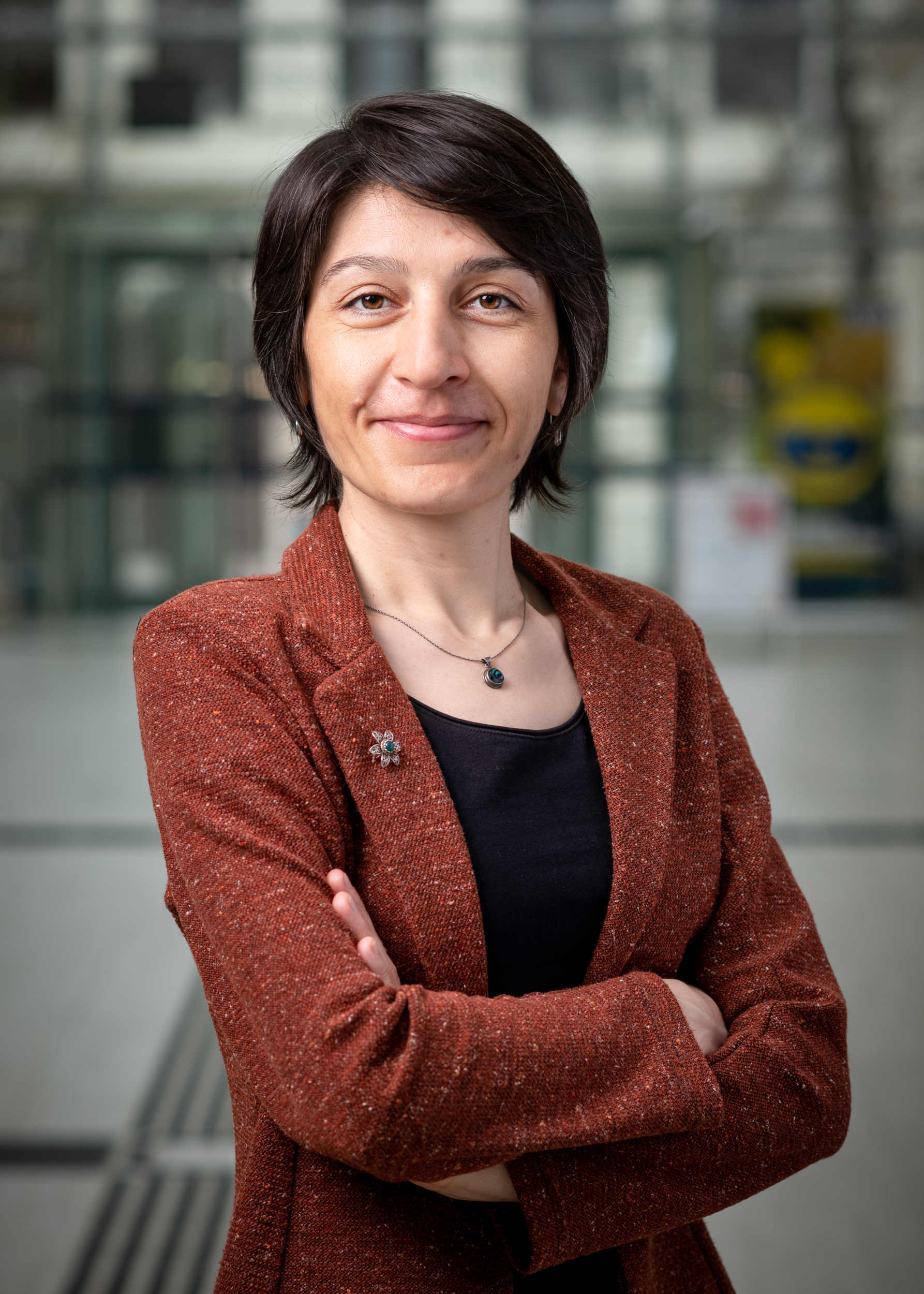
Dr phil. Derya Özkaya
Phone: +43 (0)316 380 - 6831
Email: derya.oezkaya(at)uni-graz.at
Academia
Research Portal
Derya Özkaya is a university assistant with a doctorate.
Derya Özkaya is a postdoctoral researcher and lecturer at the Center for Southeast European Studies at the University of Graz. She holds a Ph.D. in Political Sciences from the Otto-Suhr-Institute of Political Science at Freie Universität Berlin, Germany. Her academic research interests are primarily centered on the politics of affect and collective emotions, ageing and activism, social and political change through protest and grassroots organizations in particular, urban movements, collective memory, political ethnography, and contemporary politics of Turkey.
Her authored and co-authored articles appeared in The I. B. Tauris Handbook of the Late Ottoman Empire: History and Legacy (Forthcoming 2025), The Affective Dynamics of Mass Protests: Midan Moments and Political Transformation in Egypt and Turkey (Routledge 2024), Urban Neighbourhood Formations: Boundaries, Narrations and Intimacies (Routledge 2020) and Analyzing Affective Societies. Methods and Methodologies (Routledge 2019).
Before joining the CSEES, Özkaya worked at the Centre for Middle Eastern and North African Studies at FU Berlin as a research associate in the research project “Political Participation, Emotion, and Affect in the Context of Socio-Political Transformations” at the collaborative research center Affective Societies funded by the Deutsche Forschungsgemeinschaft (DFG).
She supervises master’s theses on the politics of emotions and affect, collective memory, social movements, and political activism.
Expertise:
Countries: Turkey
Languages: English, German, Turkish
Disciplines: Political Science, Sociology
Dr.phil. Hrvoje Paić, Mag. Sci., Dipl. oec.
Phone: +43 316 380 - 6824
Email: h.paic(at)uni-graz.at
Office hours: Monday, Wednesday 9.30 - 10.30
Research portal
Hrvoje Paić is Senior Lecturer and academic coordinator of the doctoral programmes at the Centre.

Hrvoje Paić is a Senior Lecturer and Researcher at the Center for Southeast European Studies. Hrvoje teaches courses at the Center as part of Master's programs and Doctoral Programs. He is the Academic Coordinator of the Center's two doctoral training programs: Doctoral Program Europeanization Processes in Southeastern Europe and Doctoral School Law and Politics. He studied at the University of Zagreb on the Faculty of Economics (master's degree) and at the Faculty of Political Science (postgraduate degree), as well as at the University of Vienna, Faculty of Political Science (doctoral degree). Before his involvement at the Center he worked as a lecturer and researcher at the Institute of Political Science at the University of Vienna, and as a researcher at the Austrian Institute for International Politics OIIP. His teaching and research deals with Political and Social Theory, research methodology, Critical Regional Studies, Critical Europeanization research, Postcolonial studies and modern political history with a regional focus on Southeastern Europe.
Expertise:
- Countries: Bosnia and Herzegovina, Croatia, Austria, Serbia
- Languages: German, English, Croatian
- Disciplines: Political and social theory, critical regional studies, critical European studies, methods in social sciences
Mag.phil. Tanja Bilaver
Phone: +43 316 380 - 6823
Email: tanja.bilaver(at)uni-graz.at
Research Portal
Tanja Bilaver is the centre manager.


Mag.rer.soc.oec. Sylvia Grossgasteiger
Phone: +43 316 380 - 6685
Email: sylvia.grossgasteiger(at)uni-graz.at
Sylvia Grossgasteiger is a research manager.
Ulrike Jöbstl
Phone: +43 316 380 - 6832
Email: ulrike.joebstl(at)uni-graz.at
Ulrike Jöbstl works in back office management.
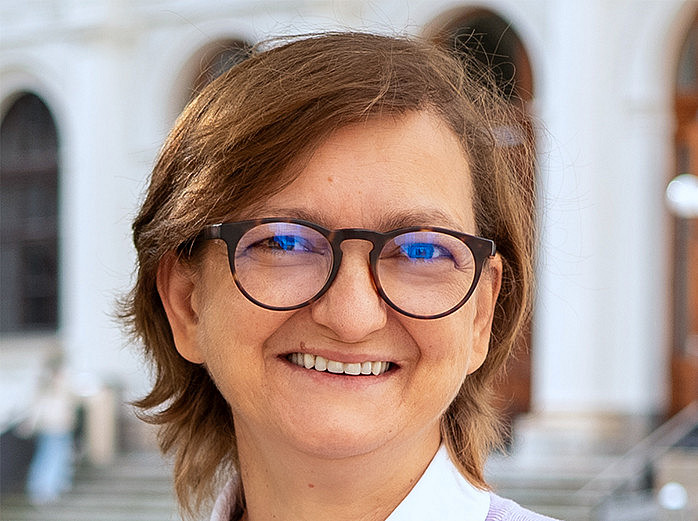

Dr.iur. Sanja Kmezić
Phone: +43 316 380 - 6697
E-mail: sanja.kmezic(at)uni-graz.at
Consultation hours: by appointment
Research portal
Sanja Kmezić is a lecturer and coordinator of the Master's programmes.
Sanja Kmezić is a Lecturer and the Coordinator for the Joint Master’s Programme in Southeast European Studies, and the Arqus Joint Master’s Programme in European Studies at CSEES. She earned her B.A. in law at the University of Belgrade, an MPA at the University of Pittsburgh, and a doctorate at the University of Graz. Her research interests include decentralization and subnational finance, governance and development. She also serves as an international advisor for the World Bank Group, focusing on programs aimed at optimizing local and regional public services in the Western Balkans. She is the co-author of “Fiscal Decentralsation, Local Government and Policy Reversals in Southeastern Europe” (Palgrave, 2018).
Expertise:
- Countries: Western Balkans
- Languages: English, Serbian/Croatian/Bosnian/Montenegrin, German, Italian
- Disciplines: Public policy, subnational public finance, public law